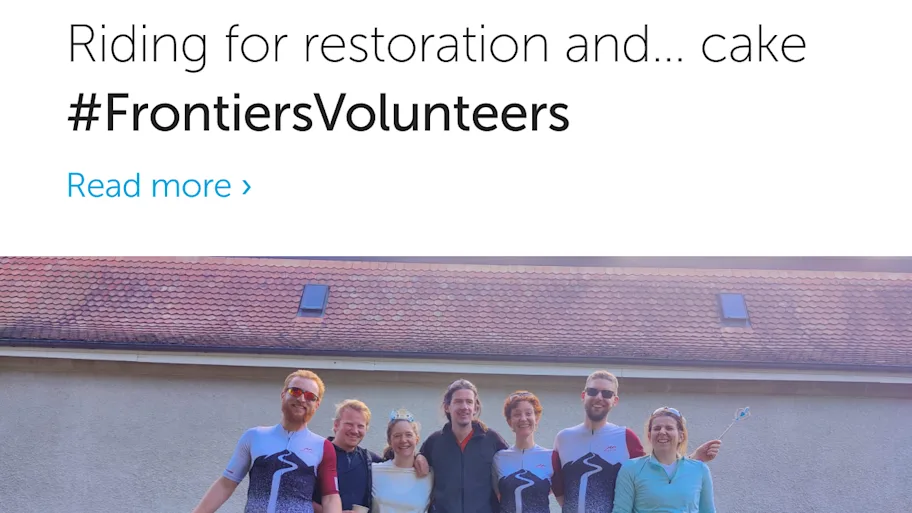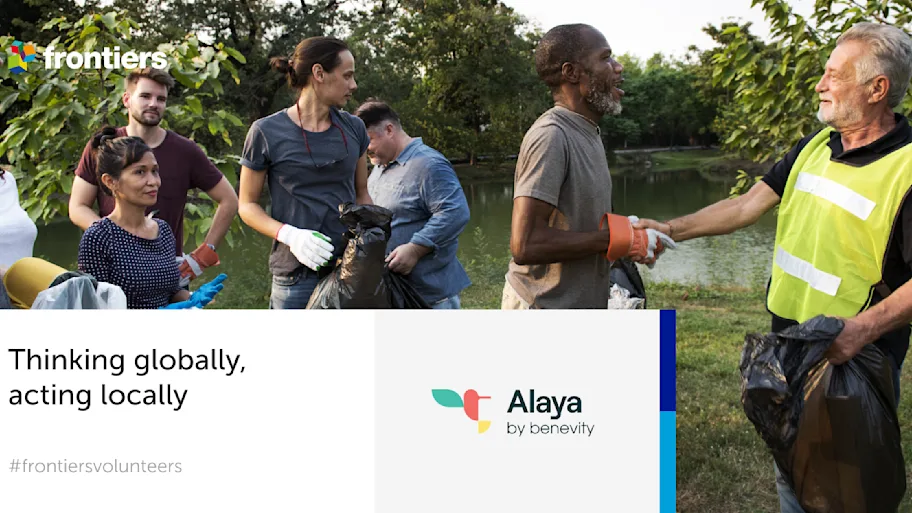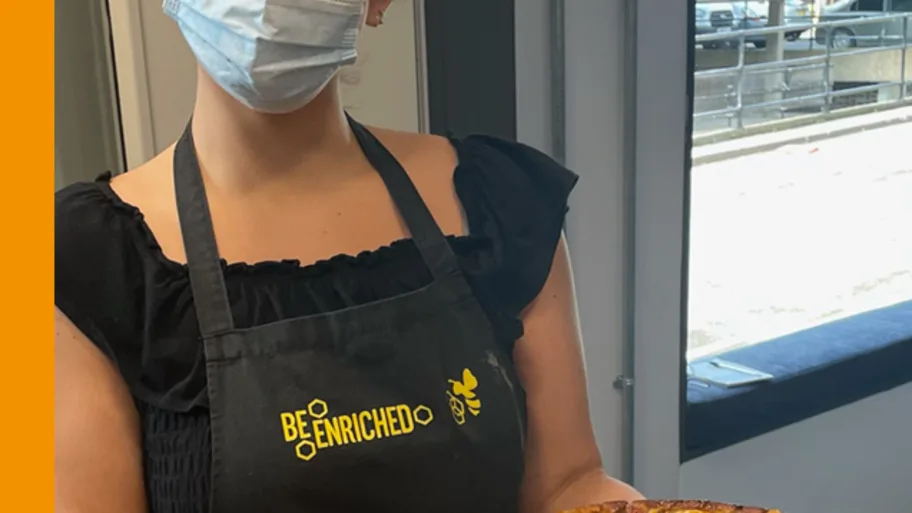
- Science news
- Frontiers news
- Frontiers’ volunteers: 26.2 miles in support of the National Autistic Society
Frontiers’ volunteers: 26.2 miles in support of the National Autistic Society
Frontiers’ volunteers have always been at the forefront of community and societal responses. This week, we talk to fellow Fronton Liz Bowley, Director of Publishing Development, about taking on a gruelling challenge of the 2021 Marathon in support of the National Autistic Society.

Liz Bowley (Image credit: Jennifer West)
What is your background? What is your role at Frontiers?
I have had multiple roles at Frontiers. I joined in 2016 as a Journal Manager, and have since been a Head of Program and then the Head of Success Management for our Publishing Development department. Currently, I am the Director of Publishing Development, covering for my colleague’s maternity leave.
What was your motivation for choosing to embark on the 2021 marathon?
My nephew Henry received his autism diagnosis just before his second birthday. Before Henry’s diagnosis I didn’t know much about autism and I quickly realised that most of what I thought I knew was based on stereotypes and wasn’t very accurate at all. There is so much misinformation online, and my sister Jenny (Henry's mum) has been doing a lot to educate me. She has just had her second baby so whilst she couldn't run herself, she suggested that this was something I could do to help raise awareness, and submitted an application to the National Autistic Society to get me a place in a 2021 marathon. I love a challenge and was feeling quite demotivated after all the lockdowns, so decided that it would be a great way to get involved and boost my fitness again.
What exactly does the charity do?
The National Autistic Society is the leading charity for autistic people and their families in the UK. Since 1962, it has been transforming lives, changing attitudes and creating a society that works for autistic people. They provide support, guidance and advice for people on the autism spectrum and their families, as well as campaigning for improved rights, services and opportunities to help create a society that works for autistic people.
How did you prepare for this gruelling challenge of conquering 26.2 miles (42.2km)?
First, I got (and followed!) advice from my dad, who was a competitive runner back in the day, to 'eat eggs, rice, and drink lots of tea to stay hydrated'.
Then, I wrote a 6 months training plan and was filled with optimism.
Next, I needed to start the training. I had already run several half marathons over the past few years, but all my races were cancelled during the pandemic, and without them to motivate me, I had dropped down to distances of about 5km… So a full marathon felt very daunting and I kept postponing the start of the training plan!
Finally, I started building myself up to 15-mile runs, stocked up with orange flapjacks baked by my godmother to fuel me when the going got tough. It was really hard trying to build up distances around London as the routes involve a lot of road running, navigating traffic and high levels of pollution. Instead, I planned running weekends away. I did a lot of running along the south coast of the UK where the scenery is quite inspiring and then built in some hill training by entering trail races along the Jurassic coast. I even signed up for a long weekend of trail running up and down the Carrapateira Hills in Portugal which was amazing, but really tough. I got my distance up to about 19 miles, and then decided that was enough training and I would just focus on maintaining it until the big day.
What was the most challenging part on the day?
I did the majority of my training alone, and I completely underestimated how much you need other people to get you through these kinds of physical challenges. I was really lucky that at the start of the race I got chatting to a woman who had run several marathons before, in some really exciting places. She soon realized that I had underestimated how challenging this would become, especially on the undulating course of a trail run, and with no crowds or spectators to carry you through. As the distance started to increase, and my hips started to feel the strain of the relentless repetitive motion, this stranger kept me plodding along by telling me stories of her travels and running adventures.
The other thing I completely underestimated was how cold you get running these distances in the winter. I couldn't get warm, and this was clearly noticeable by the end as my concerned mother started rummaging through her handbag saying, 'Liz, would you like some lipstick? Your lips are blue...' No, after running for almost 5 hours, I didn't want lipstick. {smiles} I stuck to my dad's advice and got a large cup of tea, and cuddled my 6-month-old niece for some extra warmth!
What support have you had from your fellow Frontons?
I am overwhelmed with the amount of support I have received from my fellow Frontons. I had 89 supporters in total, and some people also donated raffle prizes, like guided tours of the British museum and singing lessons! More than that though, I found the words of encouragement really supportive, and several people reached out to me to tell me how close to their own hearts this cause was.
Support certainly means a great deal. Finally, would you do it again?
Absolutely, although next time my sister isn't getting out of it! There are some things I would do differently...like not putting off the start of my training plan for an extra couple of months, but even though I didn't feel as though I had done enough training to succeed, it's amazing what a bit of determination and support from your friends and colleagues can get you through.
While Liz is not ready to hang up her running shoes just yet, we congratulate her dearly on a fantastic effort in support of the National Autistic Society and look forward to hearing about her new endeavors and achievements (with a cup of tea and not a lipstick!).
For more than a decade, Frontons have been showing a great passion and big heart for the most pressing world causes, both as scientists and as citizens of the world. At Frontiers, we are committed to contributing to communities in a meaningful and sustainable way and encourage our people to participate in charity _activities._
To sponsor Liz and support the National Autistic Society, please visit https://www.justgiving.com/fundraising/liz-bowley

Frontiers is a signatory of the United Nations Publishers COMPACT. This interview has been published in support of the United Nations Sustainable Goal 17: Partnerships for the Goals






